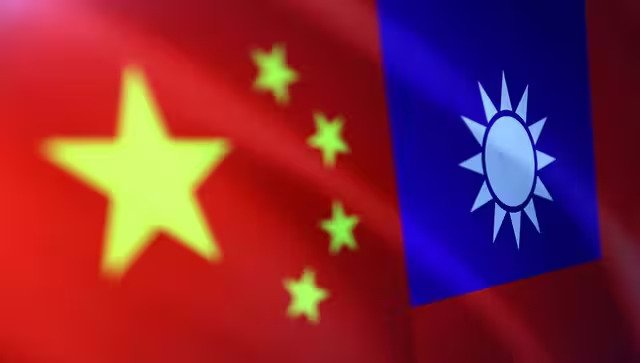The informal visit of the three former Indian service chiefs to Taiwan in August came at a time when speculations were rife about heightening tensions across the Strait of Taiwan. This premise, since the onset of military operations in Eastern Europe a year and a half ago, has found more takers across the globe as China continues to harbour a desire for ‘reintegrating’ a perceived ‘renegade province’, Taiwan, with the mainland. Since the early days of the formation of the People’s Republic, the reunification of Taiwan has been a key pillar of China’s stated national goals and has also become a cornerstone of Beijing’s security and foreign policy. Owing to China’s position, there has been a periodic escalation of military tensions with Taiwan and, in and around the Strait of Taiwan. This has been the cause of regular instances of violations of Taiwan’s maritime and airspace. This, along with the general belligerent attitude of China in most, if not all, of its external engagements, has done little to douse any speculation of an imminent conflict. Speculation or Prediction Notwithstanding all these arguments that have been put forth over many months, rational or not, there is a need to take a re-look at the prospects of China actually launching a military operation for reintegration. At the core of this issue lies communist nations’ general practice of deploying their armed forces as an instrument of diplomacy, which is part and parcel of their statecraft. However, the deployment of the Chinese military has generally been limited to specific disputed borders, which Beijing often claims as its own. Going by past experience, the nature of mobilisation and the subsequent combat had been limited in scope. This owes to the Chinese approach of incremental enhancement of military adversity, which in turn is played over a long-term. The intention is to ensure that the border/ territorial dispute is neither thrown into the backburner, nor forgotten, nor is it escalated beyond the threshold that would make Beijing uncomfortable. At the same time, for Beijing, instances of conflict are also instruments for changing the status quo both at a political-diplomatic level and as well as on ground, however limited they may be. Owing to this approach, Beijing’s military operations, despite being seen as adventurous, have predominantly been limited in both scope and nature. This is unlike most of the wars/ conflicts that have dotted the world since the end of the Second World War. They all have mostly witnessed mass mobilisation of troops with targeted goals and decisive outcomes. This is not to say that China has been risk-averse. On the contrary, the Communist state has been the instigator of most, if not all, clashes of the kind, and has suffered sufficient losses in men and material since its inception in 1949. What drives China, especially over the past decade, is not only national interest but also national image. It is for this reason that Beijing would rethink any further military adventurism, and for more than one reason. Barring specific military operations, the major conflicts of this century have been asymmetric in nature, prolonged, and indecisive. Indecisive, because military victory does not translate into political and geo-strategic victory, as has been the case in Afghanistan, Iraq, Syria, and the ongoing Ukrainian crisis, to name only a few. For China, whose last battle was with Vietnam in 1979, even the last couple of border stand-offs with India did not go well either on the frontlines or in the headlines of the international media. It is for this very reason that Beijing would be circumspect when it comes to initiating any serious combat operations with the intent of reunification. This is so as the primary challenge for Beijing is not only limited to the military outcome but also the political and diplomatic posturing that would result from such an operation. On the diplomatic front, China would not only have to face the heat but would also factor in the complex maritime environment. This environment would not only entail the dispute in the South China Sea, to which it is a party, but also critical sea lanes of communication. The first fallout of any escalation of tensions in these waters would be felt in commercial shipping, and that in turn would have an adverse impact on the economies of all the littorals of the South China Sea and beyond. It is this economic fallout that would have a lasting impact beyond the battlefield. For China, it would not only have domestic implications but also impact the nation’s external engagements. It is the possibility of such a fallout that would force Beijing to reconsider any form of military adventurism beyond muscle-flexing, as the snowball effect would have far greater consequences going beyond the waters of the Strait of Taiwan. A possible fear of Beijing that could become a reality is its ‘Malacca Dilemma’, an apprehension that the vital sea lanes of communication through the Strait of Malacca could be interceded by hostile nations, thereby decoupling the Chinese economy from the world market. While the Malacca Dilemma may still be a theoretical construct, the disruption of shipping in the South China Sea could become a reality. The writer is a New Delhi based security and foreign policy analyst. Views expressed in the above piece are personal and solely that of the author. They do not necessarily reflect Firstpost_’s views._ Read all the Latest News , Trending News , Cricket News , Bollywood News , India News and Entertainment News here. Follow us on Facebook, Twitter and Instagram.
This is why Beijing would be circumspect when it comes to initiating any serious combat operations with the intent of reunification
Advertisement
End of Article


)

)
)
)
)
)
)
)
)



